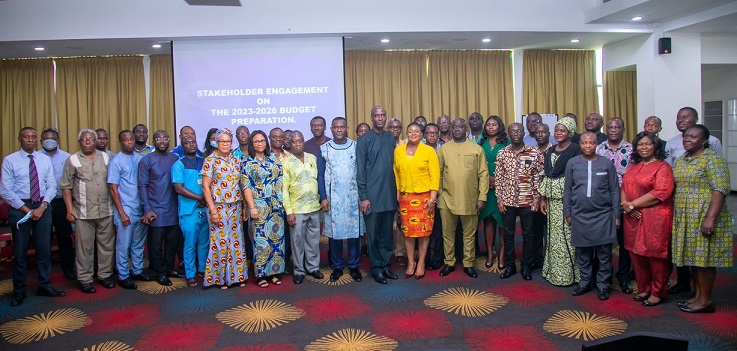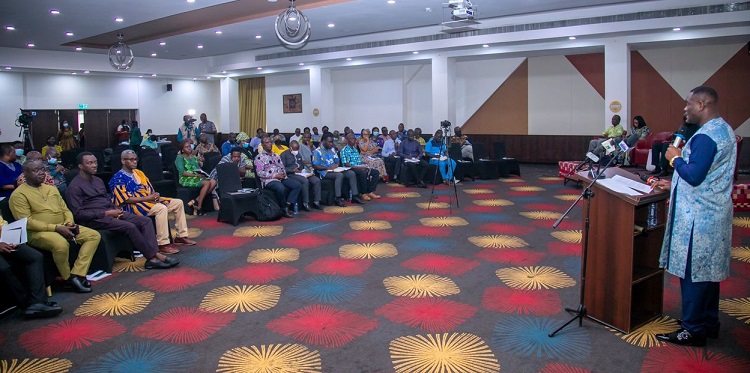Accra, 18th October, 2022 - Government through the Ministry of Finance has engaged stakeholders on the 2023 Budget Statement and Economic Policy to be presented by Finance Minister, Ken Ofori-Atta this month.
The engagement forms part of measures by the Ministry to deepen citizen participation in the budgeting process and to ensure that the nation achieved inclusive growth and national cohesion on its policies and programmes. The engagement also afforded stakeholders the opportunity to make their inputs into the 2023 budget.
Speaking at the engagement, a Deputy Finance Minister, Dr. John Ampontuah Kumah indicated that, such engagements had become crucial considering the current economic turbulence being experienced both locally and globally.

“Our economy, just as many other developing and emerging economies, is still managing the pressures posed by the current global and domestic challenges such as revenue underperforming, increasing debt service as a result of growing interest payments, credit ratings downgrades and rising cost of compensation payments, among several others.
“Considering the fact that Ghana is not expected to return to the International Capital Market, (a major financing source in recent times to augment domestic financing), anytime soon, the financing challenges currently being faced by Government is likely to persist,” he said.
The Deputy Minister, however, was quick to add that he was optimistic that all current policies and strategies being implemented and explored by the Akufo-Addo administration would help address the economic challenges.
According to Dr. John Ampontuah Kumah, government had various focus areas in the short to medium term to accelerate the economic recovery of the nation.

“As we make our submissions and propose recommendations for preparation of the 2023 budget, let us be guided by the focus areas of government for the ensuing fiscal year and the medium-term”.
These include measures to restore and sustain macroeconomic stability, ensure durable and inclusive growth, and promote social protection; maximize revenue mobilization efforts by widening the tax net, enforcing compliance measures and vigorously pursuing the digitalization agenda to minimize revenue leakages and introduce efficiency measures in the use of public funds.
He added that government would always welcome suggestions, recommendations and proposals that would enrich the 2023 budget.
Chief Director of the Ministry of Finance, Dr. Patrick Nomo, in his address noted that, the Annual Budget was a major policy tool for the determination of national priorities, programmes categorization, resource allocation and accountability.
“The budget process, therefore, makes room for engagement of stakeholders across a broad spectrum of Ghanaians. This provides opportunity to obtain perspectives and insights that can only emanate from a collective national representation” Dr. Nomo added.
He encouraged stakeholders to also make written submissions to the Ministry by 26th October to enable the Ministry process as much of the inputs into the 2023 Budget Statement and Economic Policy.
The engagement was attended by representatives from SEND Ghana, Association of Ghanaian Industries, Makola Market Traders Association, Institute of Statistical, Social and Economic Research (ISSER) of the University of Ghana, Ghana Charismatic and Pentecostal Churches Association and several other civil society organizations, trade groups, and academia who made inputs into the 2023 budget.
Presentations centered on proposed revenue options to be considered by government, reforms on social protection programmes, how government can reduce waste in the public sector, security, education, digitalization and several others.
Present at the engagement was the Chief Director, Ministry of Finance, Dr. Patrick Nomo, Acting Director of Budget, Thomas Appiahgyei, Coordinating Director (Operations), Mrs. Stella Dede Williams and several other senior officials of the Ministry. END
